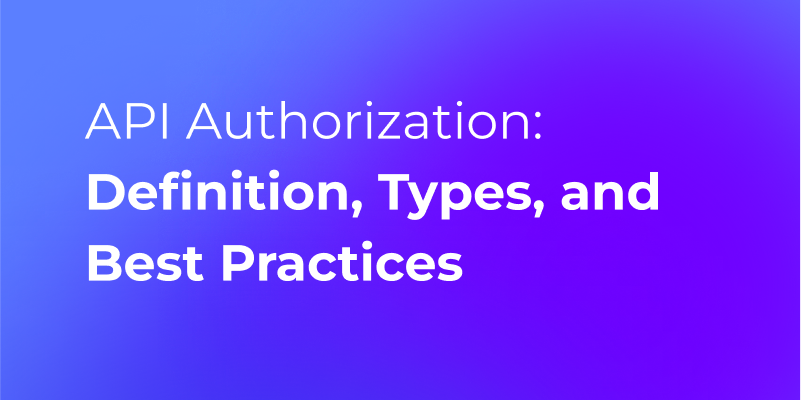Security Priorities for Logistics Apps: Essential Steps in Development
This article will explore the vital subject of securing logistics apps. It details key steps and best practices to enrich logistics solutions with effective security measures.
Introduction
Logistic apps have become increasingly valuable tools for businesses worldwide. They redefine supply chain management and improve operational efficiency. The estimates of a Strategic Market Research report forecast that the global digital logistics market will touch the $77.52 billion mark by 2030. The figure represents a compound annual growth rate (CAGR) of 17.54% from 2021 onwards. This exponential growth explains the massive adoption of logistics apps in different sectors.
However, as the logistics app's popularity keeps rising, so does concern over cybersecurity and data privacy. The reason is that these apps hold chunks of sensitive data, from shipment details to customer addresses. Such data is lucrative in the eyes of attackers.
Apidog is a completely free API management tool to implement the API security best practices, Get it free from the following button.
This article will explore the vital subject of securing logistics apps. It details key steps and best practices to enrich logistics solutions with effective security measures. From encryption algorithms to access controls, we cover all the aspects you need to know to strengthen security in logistic apps.
Common Security Threats Affecting Logistics Apps
Here are some of the common security threats your logistics app is likely to encounter:
1. Data Theft and Data Manipulation
Hackers take advantage of vulnerabilities in logistics app API or underlying systems to access sensitive data. Sensitive data in this regard may include things such as customer information, payment details, and location data. These data breaches can result in financial losses, identity theft, legal risks to the organization, and reputational damages.
Furthermore, attackers may alter the data that is in the system. For example, they may modify delivery addresses, routes, prices, or inventory levels. These manipulations lead to operational inefficiencies, customer dissatisfaction, revenue losses, and safety issues. Ultimately, such attacks affect the reputation and credibility of the logistics operations and harm the trust of the affected businesses.
2. Denial-of-Service (DoS)
In Denial of Service (DoS) attacks, hackers swarm logistics APIs or systems networks with lots of requests or traffic that exceed their capacities. This makes them unable to process or handle service requests. Such malicious flooding leads to slowness or even crashes in the applications or systems. They decrease the availability and reliability of logistics services. For this reason, logistics operations encounter delays and disruptions in service delivery.
3. API Abuse
API abuse is a very real concern for logistics apps. Hackers can exploit APIs or systems for malicious activities such as spamming, phishing, or scraping. By misusing APIs, attackers consume bandwidth and resources. They degrade the performance of logistics applications and systems.

4. Supply Chain Disruption
Logistics applications are the prey of cyber attackers who aim to disrupt the smooth and efficient movement of goods and services across supply chains. They do that by taking advantage of system vulnerabilities or APIs. Thus, they block messages, change delivery schedules, or manipulate inventory levels. Such interruptions cause serious logistics problems, losses, and damage to the reputation of businesses dependent on logistics operations. Disruptions in the supply chain propagate throughout the system, affecting suppliers, distributors, and end customers.
5. Unauthorized Access
Unauthorized access is a severe drawback of logistics apps. Hackers attempt to find loopholes to access APIs or systems without consent. Attackers pretend to be legitimate users or devices, which helps them overcome entry security measures and get access to sensitive information. Such violations are contrary to privacy and security guidelines and may result in compliance fines.

Essential Security Tips in Logistics App Development to Keep Away Hackers
● Source Code Encryption
Source code encryption is one of the essential security mechanisms applied to protect the secrecy/confidentiality and authenticity of software applications. Through the process of cryptography and the use of secret codes, developers can stop unauthorized access and tampering, protecting security algorithms, sensitive data, and intellectual property. Encryption methods like AES (Advanced Encryption Standard) and RSA (Rivest-Shamir-Adleman) are usually used to scramble the source codes to turn them into an unreadable format which can only be deciphered if the decryption key is provided.
In other words, source code encryption forms a protective layer against malicious actors aiming to reverse engineer or exploit the vulnerabilities in the code. Additionally, source code encryption improves regulatory compliance by decreasing the possibility of data breaches and unauthorized access. While developing your logistic app, ensure you implement this security measure for the good of your app and users.
● Using A Code Signing Certificate
Using a code signing certificate is a basic requirement for the security of logistics apps. Developers ensure the authenticity and integrity of software by digitally signing executable files and scripts with a code signing certificate. This validation assures users that the app is signed by a trusted source and hasn't been altered since signing. In the logistics sector, where data integrity and reliability are of extreme importance, code signing certificates perform a crucial role in mitigating unauthorized changes and ensuring malware penetration doesn't occur.
In addition, compliance with industry regulations and standards is augmented by code signing certificates, which provide a trustworthy trail of compliance. Generally, including code signing certificates in the logistic app development builds up the users' confidence, strengthens the security measures, and constructs the authenticity and reliability of the app.
● Secure API Integration
Secure API integration efficiently improves app security mechanisms by integrating strict protocols to authenticate and authorize communication between different app parts. Developers can prevent the risk of unauthorized access or data breaches by means of authorization since the API requests and responses must be verified. This guarantees the security of the data transferred within the logistics app system. Furthermore, encryption and access control measures are implemented to maintain the privacy and authenticity of data sent over APIs.
● Robust Authentication
Strong authentication procedures are among the security measures that help to certify the identities of users and devices accessing a logistics app system. Multi-factor authentication (MFA) and biometric verification provide additional security layers. Through authentication tokens, unauthorized access is greatly reduced, even if the password resources are hacked.
Besides that, authentication constitutes the basis for combating phishing and unauthorized entry. It ensures the security of the sensitive data and prevention against the breaches. Implementing robust authentication protocols empowers logistics apps to build trust amongst users and stakeholders. It ensures that only authorized people manage critical resources and functionalities.
● Data Minimization and Access Controls
Data minimization and access controls are key elements in strengthening the security of logistics apps through the reduction of collection, storage, and access to sensitive data. This is achieved by only retaining necessary data and implementing granular access controls that reduce the attack surface and lessen the chance of unauthorized disclosure or misuse.
This also guarantees compliance with the data protection laws and may reduce the risks associated with possible breaches to a minimal level. Besides, the RBAC system (role-based access controls) provides administrators with the possibility to assign permissions on user roles and restrict access to confidential data to authorized personnel only.
● Open Authorization
Open Authorization (OAuth) contributes to securing logistics apps by providing a standardized protocol for secure authorization and access delegation. In OAuth, developers are able to allow users to approve limited access permissions to third-party services without having to disclose their credentials. This is a preventive measure that nullifies the chances of credential stealing and unauthorized access to sensitive data.
Furthermore, OAuth simplifies the administration of access management through centralized management. In other words, it enables the administrators to revoke access tokens and audit user activity systematically. Logistics applications utilizing OAuth can have secure authentication and authorization, guaranteeing that the risk of identity theft or unauthorized data access is eliminated and, simultaneously, making these apps interoperable with third-party services.
● Input validation
Input validation strengthens logistics app security by validating and sanitizing user inputs to prevent injection attacks and data manipulation vulnerabilities. Source code validation reinforces logistics apps defense by validating and sanitizing user input for the purpose or prevention of injection attacks and data manipulation vulnerabilities.
Using proper input validation routines, the developers reduce the probability of malicious users utilizing the input field vulnerabilities to perform different kinds of injections such as SQL Injection, Cross Site Scripting or other injection-based attacks.
Input validation that is done correctly means that only expected and safe data is processed by the application, thus minimizing the chances of attacks on security and data corruption. This way of giving priority to the input validation makes the logistics apps more resilient to the conventional ways an attack can be made and hence helps ensure the data processing operation's integrity and reliability.
● Secure the Backend
Imperative for logistics app security is the need to secure the backend infrastructure because it is the one that supports data storage, processing, and communication. By strengthening authentication mechanisms, encryption protocols, and access controls, developers manage to secure backend resources against the threat of unauthorized access and data leakage.
Furthermore, conducting routine security audits and patch management practices will locate and patch up the vulnerabilities, thus reducing the exploitation of such systems by malicious actors. Also, it is necessary to apply secure coding practices and follow industry standards and best practices to have the backend infrastructure be more resilient in the face of emerging threats. By prioritizing backend security measures, logistics apps can ensure the confidentiality, integrity, and availability of critical data and functionalities.
● Use the Latest Cryptography Techniques
Deploying the most recent cryptography techniques can strengthen logistics app security by encrypting essential data and communications. The use of sophisticated algorithms like AES-256 and elliptic curve cryptography can reinforce data protection and make it hard for unauthorized users to encipher stolen information.
Using the latest cryptographic mechanisms, developers ensure the protection of data confidentiality and integrity during data exchanges within the logistics ecosystem; hence, even in case of data breaches and unauthorized access, the risk of such is minimized.
● Perform a Thorough QA and Security Check
Make QA and Security check the baseline for protecting logistics apps. Comprehensive Testing Methodologies covering Vulnerability Assessments and Penetration Testing are crucial for uncovering security vulnerabilities and flaws and taking necessary corrective measures before deployment. Performing extensive QA and security checks reduces the possible exploitation of malicious users and boosts reliability and robustness in real-world scenarios.
Conclusion
As a developer, it is necessary that you take the best security measures to develop a secure logistics app. Failure to do so might lead to insecurity threats such as data theft and data manipulation, denial of service attacks, API abuse, and supply chain disruptions. This article has provided some measures that app developers can take to stay away from hackers.
By adopting a holistic approach consisting of encryption, authentication, access controls, and rigorous testing, the developers ensure these digital gates have appropriate protection against new threats. Take note of addressing security concerns at every development stage to build trust by users and stakeholders to protect sensitive information, data availability, and operational strength to adapt swiftly in the emerging digital age.





